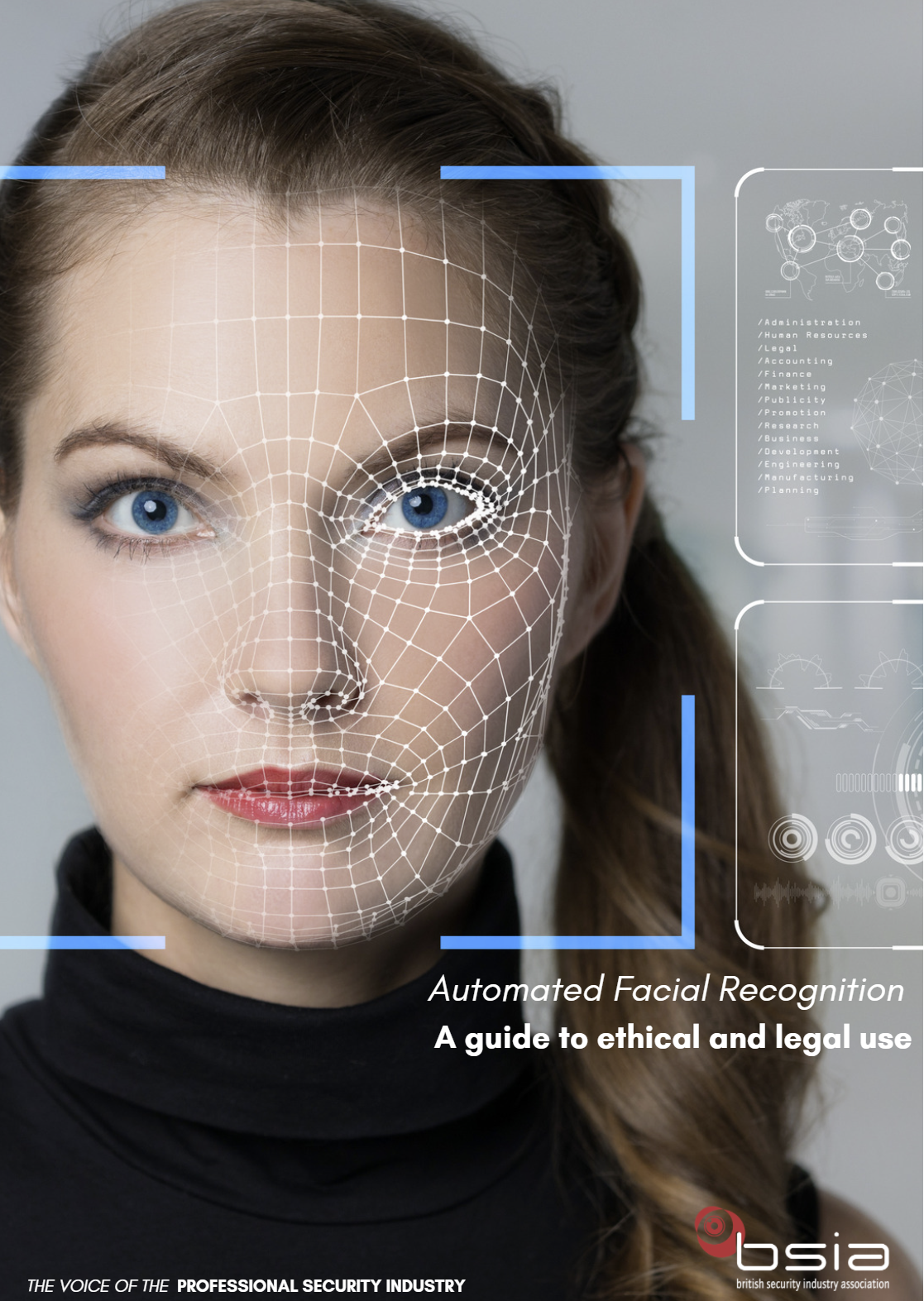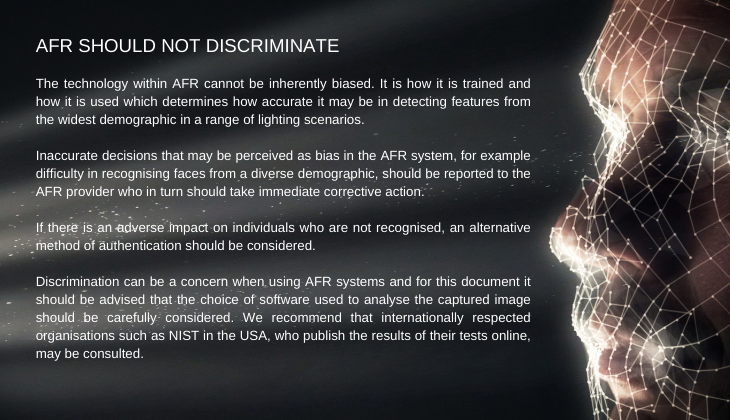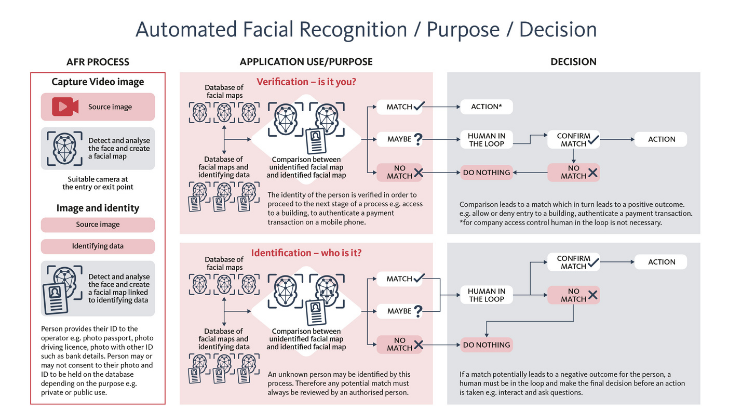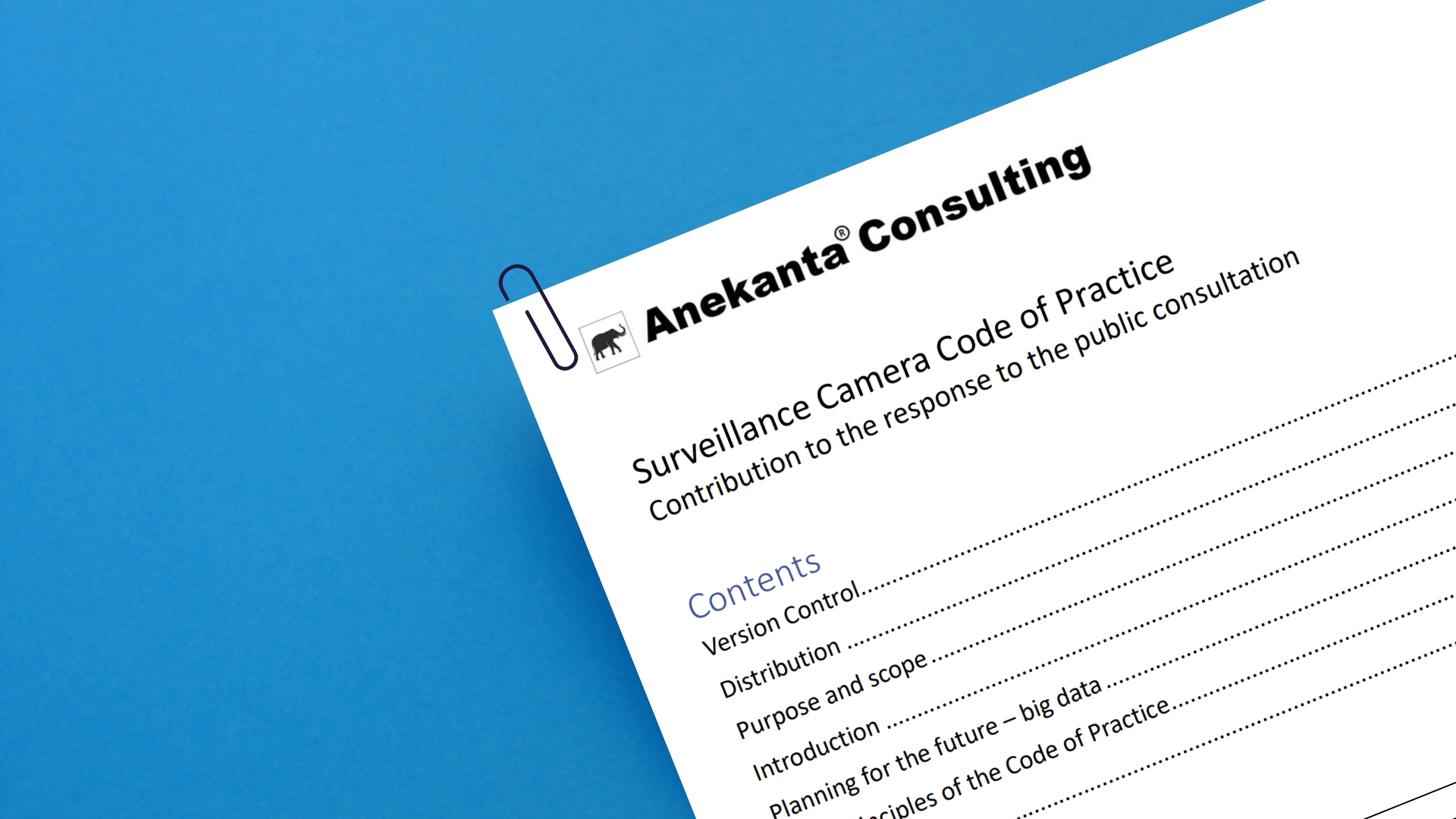
AI/ Automated Facial Recognition
DOWNLOAD OUR LEGAL AND ETHICAL GUIDE
The BSIA prides itself on being the industry voice in all areas which affect the professional security industry. Automated Facial Recognition (AFR) is a technology that has been designed to improve the safety and wellbeing of people, as well as providing a tool to assist and speed up operational processes. AFR is one of many data analysis technologies which sit under the overarching umbrella of Artificial Intelligence (AI), a branch of Computer Science.
There is no single global ethical framework for the safe use of AI, therefore we refer to the Organisation for Economic Cooperation and Development (OECD) recommendations which identify five complementary values-based principles for the responsible stewardship of trustworthy AI:
AI should benefit people and the planet by driving inclusive growth, sustainable development and wellbeing.
AI systems should be designed in a way that respects the rule of law, human rights, democratic values and diversity, and they should include appropriate safeguards, e.g. enabling human intervention where necessary to ensure a fair and just society.
There should be transparency and responsible disclosure around AI systems to ensure that people understand AI-based outcomes and can challenge them.
AI systems must function in a robust, secure and safe way throughout their life cycles and potential risks should be continually assessed and managed.
Organisations and individuals developing, deploying or operating AI systems should be held accountable for their proper functioning in line with the above principles.
.jpg)
Chairman: Andy Schofield
As Chief Technology Officer at BSIA member Reliance High-Tech, Andy exemplifies an unwavering dedication to technological advancement and innovation, particularly in fortifying the security industry. Andy has expertly steered the technology teams to excel in every facet of technology implementation, from meticulously researching the feasibility of cutting-edge technologies to delivery and optimal life cycle management and development of new solutions.
Contact AndyLatest work
Latest Surveillance Camera Commissioner blog with BSIA mention
The camera that mistook a women's jumper for a car.

The All-Party Parliamentary Group for AI (APPGG AI) called for evidence from industry, privacy groups, policing, and academia.
What regulation is needed for facial recognition software, to ensure that its ethical and legal use bolsters UK’s national security and fosters public trust?
BSIA were represented by Honorary BSIA Member Pauline Norstrom.
BSIA respond to amendments of the Surveillance Code of Practice
The BSIA takes pride in responding to public consultations which affect the professional security industry on behalf of its membership.
It's the Surveillance Camera Commissioner's role to ensure that surveillance camera systems such as CCTV, Automatic Number Plate Recognition and Body Worn Video cameras are used to protect communities rather than spy on them.
To help with this the Surveillance Camera Code of Practice was published by the Home Office in 2013. With recent 2021 updates the BSIA turned to its members to submit a joint response.
Click on the image to access the document drawn up by Anekanta Consulting which served as the basis for the joint response to this public consultation.
GovUK Briefing note - with BSIA evidence 
The ethical issues arising from public-private collaboration in the use of live facial recognition technology
The Biometrics and Forensics Ethics Group (BFEG) was commissioned to investigate the ethical issues raised by the collaborative use of live (real-time) biometric facial recognition technology (LFR) by public (police) and private organisations

BSIA AFR SIG's latest guide
Automated Facial Recognition
- A guide to ethical and legal use
This guidance provides advice and recommendations on the ethical and legal use of AFR technology for beneficial use in both public and private sector environments to ensure it does not cause harm or discriminate against persons.
It takes into account current known legislation, standards and guidance around AI and in particular AFR.
It is intended to be useful to system designers, installers/integrators, and end-users.
The BSIA's guide to the ethical and legal use of Automated Facial Recognition
Is now available on the Gov UK website!


Pauline Norstrom represents BSIA on CoESS conference
2 June 2021 - Pauline talked about the BSIA's ethical and legal guide to Automated Facial Recognition. This is within the context of the latest proposed EU Artificial Intelligence Act which calls for a ban on the use of the controversial technology for remote biometric identification purposes by law enforcement in publicly accessible spaces unless certain requirements are met. She explained the potential impact of the proposed legislation on the users and providers of AFR technology and how the BSIA guide navigates through verification and identification to ensure safe, ethical use within the boundaries of the relevant laws in the UK and EU.

